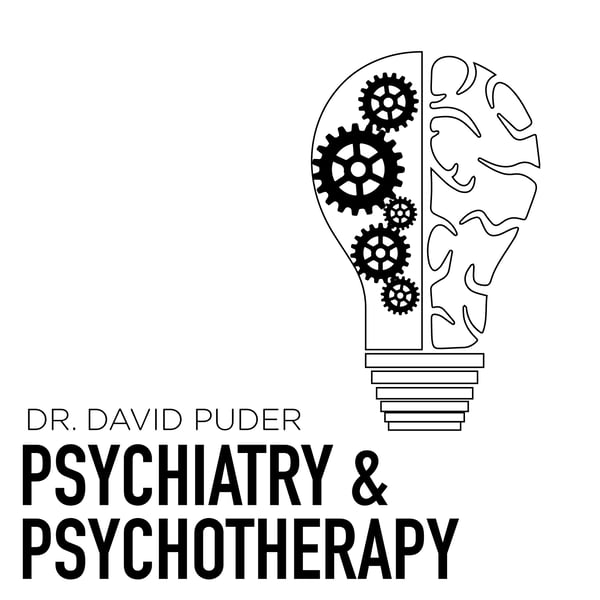Advice for medical students applying to psychiatric residency
Psychiatry & Psychotherapy Podcast
David J Puder
4.8 • 1.3K Ratings
🗓️ 16 September 2018
⏱️ 11 minutes
🧾️ Download transcript
Summary
Timothy Lee has talked to thousands of medical students about how to applying for residency programs, and here, he gives us a few tips on how to make it through the gauntlet, and how to have your best chance at landing the program you want.
Here is what Timothy Lee says:
Stay calm
Many students have been fine tuning their personal statements, and trying to get their resume just right, or hurrying to press the faculty to write letters of recommendation. It can be very stressful.
It’s okay to turn in information a little bit later, in order to have all of the paperwork you need. It’s even okay to review your statement after you’ve already turned it in. No one will lower their opinion based on that. You will need to have applied for the majority of the programs you are interested in by early or mid-October, otherwise the program director might wonder if you’re applying to them later as a backup plan.
What matters in a personal statement?
Every program director will have different opinions on what you write, and every program director will be looking for different things from your personal statement. For some people, it’s a chance to get to know the applicant a little bit. For others, it doesn’t really matter that much.
As long as your grammar and syntax are competent, you should be fine. Some people don’t worry about the format, and others are more particular. To be on the safe side, if you have access to a good mentor, run it by them. Also, don’t be too wordy—stick to a page and a half.
Do step scores matter?
Step scores are a very convenient screening tool for what matters, but there are studies that show that step scores are not directly correlated to success in residency performance. They are helpful, but are not the end-all-be-all. It’s only one part of the picture of an applicant. However, if you are going for a highly-competitive residency, you might need to worry about step scores a bit more.
Apply to the right number of programs
The number of programs is not the only way to increase your chance of success of getting in. Pay attention to the types of programs you are applying to as well. If you are applying for a good number of programs, make sure at least half of them are are ones you are a solid and potentially attractive candidate for.
Keep a good perspective
Ultimately, you are more than your CV, step score, or personal statement. If patients like you, that’s going to go a long ways. Your patients won’t know your scores, or where you graduated from medical school. They will know if you were competent, caring and connected. That is ultimately what matters.
Join and discuss this episode with David on Instagram: dr.davidpuder
Twitter: @DavidPuder
Facebook: DrDavidPuder
Transcript
Click on a timestamp to play from that location
| 0:00.0 | Welcome to the Psychiatry and Psychotherapy Podcast. The podcast to help you in your journey |
| 0:06.0 | towards becoming a wise, empathic, genuine and connected mental health professional. |
| 0:11.0 | I'm your host, Dr. David Puder, a psychiatrist who splits his time practicing psychopharmacology, |
| 0:17.0 | individual and group psychotherapy, medical director of a day treatment program, |
| 0:21.0 | medical education research, and teaching residents and medical students. |
| 0:30.0 | Dr. Lee, I know you are the program director. Yeah. And so since I have you on, |
| 0:40.0 | and we're about around that time where people are applying to residency, medical students |
| 0:45.0 | are applying to residencies, do you have any advice for medical students applying to residency, |
| 0:52.0 | psychiatric residency? Hmm. I guess having talked with a couple of senior medical students recently. |
| 1:01.0 | Having talked to thousands of medical students. |
| 1:07.0 | Recent conversations, one I'd say just, I think in general, the students are a lot more anxious |
| 1:13.0 | than they might need to be. A lot of the students have been kind of fine-tuning |
| 1:21.0 | their personal statements or trying to get their CV just right, |
| 1:27.0 | or scrambling to press the faculty that they've asked for letters that maybe are not as timely |
| 1:35.0 | in responding to those requests as a student would like. |
| 1:39.0 | Even though Ares opens tomorrow, Saturday, September 15th, |
| 1:47.0 | doesn't mean that if you don't have everything in that it's the end of the world. |
| 1:52.0 | It's okay to get stuff in a little later, |
| 1:55.0 | or if you make modifications to your statement to then upload the revised version, |
| 2:02.0 | nobody is going to call you out on that or rate you differently or lower just based on that. |
| 2:11.0 | Certainly, you want to have your application or the vast majority of it into the programs |
| 2:18.0 | that you're interested in by, I'd say, no later than early mid-October. |
... |
Please login to see the full transcript.
Disclaimer: The podcast and artwork embedded on this page are from David J Puder, and are the property of its owner and not affiliated with or endorsed by Tapesearch.
Generated transcripts are the property of David J Puder and are distributed freely under the Fair Use doctrine. Transcripts generated by Tapesearch are not guaranteed to be accurate.
Copyright © Tapesearch 2025.

